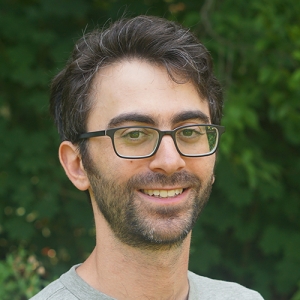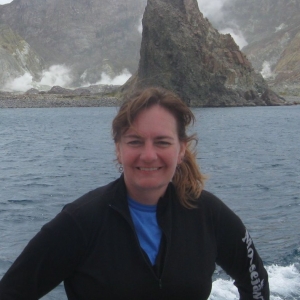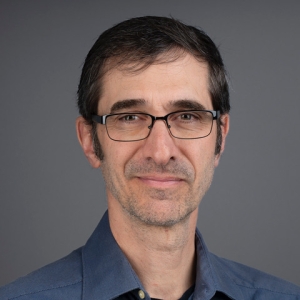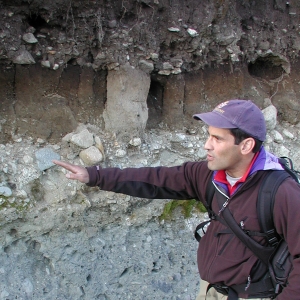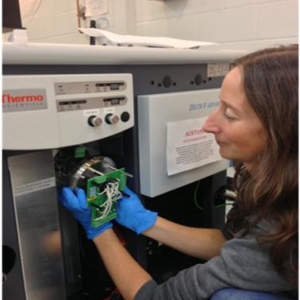$182,310: NSF Major Research Instrumentation (MRI)
MRI: Acquisition of a Cavity Ring-Down Spectroscopy (CRDS) Water Isotope Analyzer for Interdisciplinary Research and Undergraduate Research Training
Principal Investigator: Mason Stahl, James M. Kenney Assistant Professor of Environmental Engineering; Co-Principal Investigators: Holli Frey, professor and chair of geology; David Gillikin, professor of geology and director of environmental science and engineering; Donald Rodbell, professor of geology; and Anouk Verheyden-Gillikin, lecturer of geology and stable isotope laboratory manager; Senior Personnel: Jeffrey Corbin, professor of biological sciences
This grant supports the acquisition of a cavity ring-down spectroscopy (CRDS) water isotope analyzer for analysis of stables isotopes of H and O in water and solid geological and biological materials (e.g., sediments, soils, wood and plant tissues). The CRDS will enable a number of research projects on the application of stable water isotopes to: (a) characterize aquifer systems and surface-water-groundwater interaction with the aim of assessing risks to water quality (with a focus on arsenic) and availability, (b) examine non-rainfall water (fog/dew) contributions to aquifers in coastal and mountains regions, (c) explore the role of catchment characteristics on streamflow ages and the attending implications for solute and contaminant fate and transport through watersheds. Other hydrologic research includes research on geothermal waters in the Caribbean – work that has important implications for understanding and predicting volcanic unrest. The CRDS will also advance paleoclimate research, with projects on paleoclimate archives from the Peruvian Andes (lake cores and stalagmites), the development of bivalve shell proxies in several environments, and a detailed study on oxygen isotopes in tree rings. In addition, other research projects involving plant-soil water dynamics, terrestrial biogeochemistry, and a watershed isotope study will benefit from the proposed instrumentation.
Not only will the CRDS acquisition support a minimum of 22 faculty researchers from 15 institutions, it will also enrich the lab components of 12 courses and will enhance the research experiences of upwards of 25 undergraduates annually.

